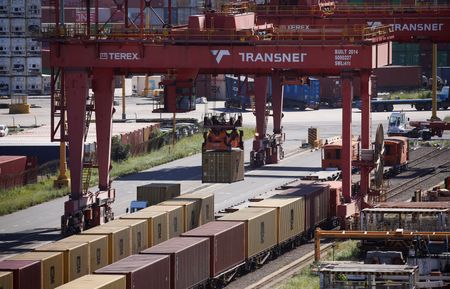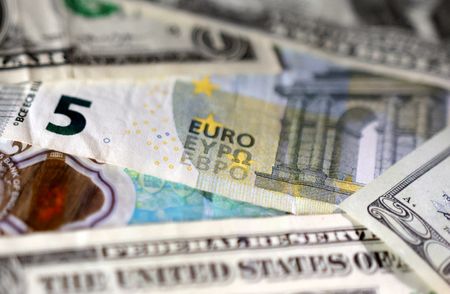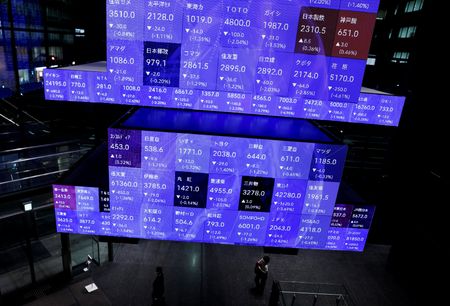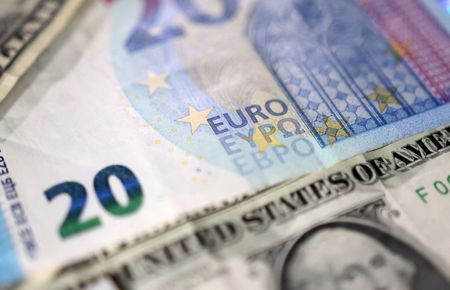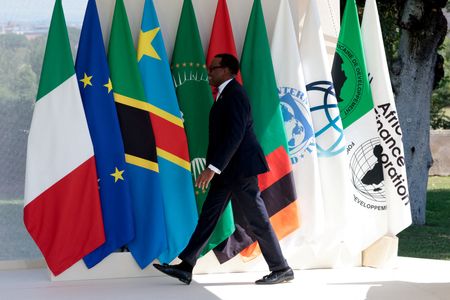JOHANNESBURG (Reuters) -A top South African diplomat said on Tuesday that U.S. demands on domestic affirmative action policies were complicating efforts to secure a trade deal, days before a 30% tariff on South African exports to the U.S. takes effect.
South Africa has tried for months to persuade U.S. President Donald Trump’s administration to lower the tariff rate or exempt key industries to avoid tens of thousands of potential job losses, but has struggled to make headway even as others like Japan and the European Union have struck deals.
Diplomatic relations between the two countries have been strained by South Africa’s Black Economic Empowerment (BEE) policies to address the legacy of centuries of racial inequality and its genocide case against Israel at the World Court, which Israel and the U.S. vehemently oppose.
Zane Dangor, director-general at the Department of International Relations and Cooperation, told a seminar in Johannesburg that U.S. counterparts had been clear in meetings “that there’s certain things they expect from South Africa, and BEE was high on the agenda”.
He did not specify what the U.S. was demanding. The country’s BEE laws, which Trump has criticized, offer incentives to companies to hire and promote Black people and in some cases require a certain percentage of Black shareholders to get a licence.
“Clearly I think what worries us is demanding from us curtailment of sovereignty on certain issues to get this (trade) deal,” Dangor said, adding he could not elaborate because of a non-disclosure agreement.
The Office of the U.S. Trade Representative did not immediately reply to a request for comment.
South Africa’s trade ministry said on Tuesday that it was still hoping to agree a deal with the U.S.
But it said it had yet to get a firm answer to an offer it had made on buying U.S. liquefied natural gas, simplifying rules for U.S. poultry imports and investing $3.3 billion in U.S. industries like mining.
South Africa also wants to exempt certain sectors from tariffs like ship-building and counter-seasonal agricultural trade, the trade ministry said.
The U.S. is South Africa’s second-largest bilateral trading partner after China. South Africa’s central bank governor has said the proposed tariff could cause around 100,000 job losses, with the agriculture and automotive sectors hit hardest.
(Reporting by Alexander Winning and Nellie Peyton; Additional reporting by Siyanda Mthethwa;Editing by Peter Graff and Deepa Babington)

